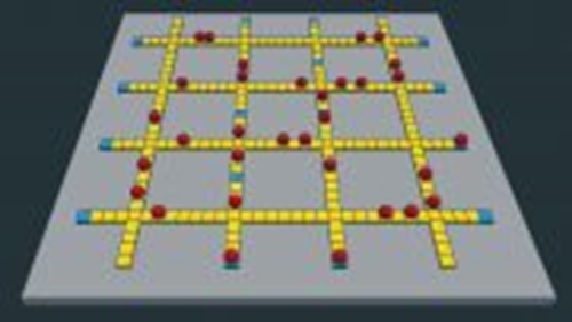Quantum Supremacy
Researchers are no longer focused solely on building a quantum computer that could carry out Shor’s algorithm and break encryption codes. For many, an intermediate goal is to achieve “quantum supremacy,” a term coined by Caltech’s John Preskill to describe the demonstration of a quantum computer that can carry out tasks that are not possible or practical with a traditional computer.

Figure 1. Quantum Supremacy
Achieving quantum supremacy is expected to be a momentous milestone, but some researchers see it as being more of a yardstick that will enable quantum computers to distinguish themselves from classical computers in their abilities to solve problems. Indeed, scientists have now created rudimentary quantum computers in their labs that are close to outpacing ordinary computers, and they are now searching for problems to attack. And quantum computers would undoubtedly be better at solving certain problems.
Applications of quantum supremacy:
- The ability to perform more complex simulations on a larger scale will provide companies with improved efficiency, deeper insight and better forecasting, thus improving optimization processes.
- Enhanced simulations that model complex quantum systems, such as biological molecules, would be possible.
- Combining quantum computing with artificial intelligence (AI) could make AI immensely smarter than it is now.
- New customized drugs, chemicals and materials can be designed, modeled and modified to help cultivate new pharmaceutical, commercial or business products.
- The ability to factor extremely large numbers could break current, long-standing forms of encryption.
Impartance of Quantum Supermacy:
- Unlike classical computers, quantum computers can not read any additional data once they start running a problem. They ingest each variable into a single qubit and then run the computations. So you need a quantum computer with enough qubits to be able to hold all of your data variables. For example, if you have 25,000 variables as part of your logistics problem you need a quantum computer that can process 25,000 variables.
- Right now, the QPU vendors are working on scaling systems to be able to actually scale to compute real-world problems. Each vendor has the ability to run a different number of variables (aka they have a different number of addressable qubits,) ranging from the mid 60s to 150+.
- As we scale the qubits, we increase the potential for errors, due to how quantum works. The more qubits we have, the more errors we may introduce. Which is why error-correction is such an important aspect of quantum computing, one that brilliant minds around the world are focusing on, right now.
References:
- https://www.nist.gov/topics/physics/introduction-new-quantum-revolution/quantum-logic-gates
- https://www.techtarget.com/searchsecurity/definition/quantum-supremacy
- https://www.quantumcomputinginc.com/blog/quantum-advantage/
Cite this article:
Sindhu.C (2022), Quantum Supremacy, AnaTechMaz, pp.33















